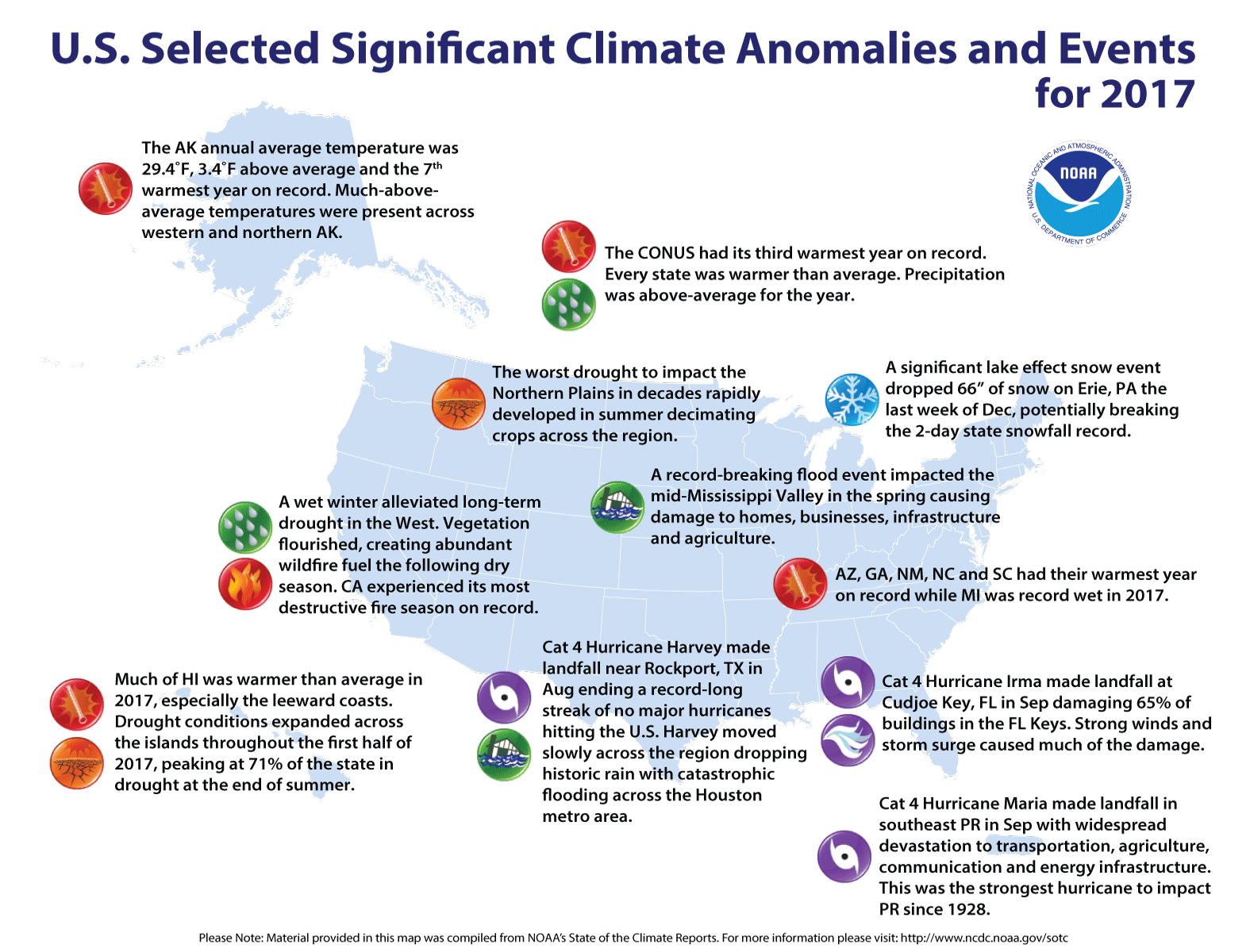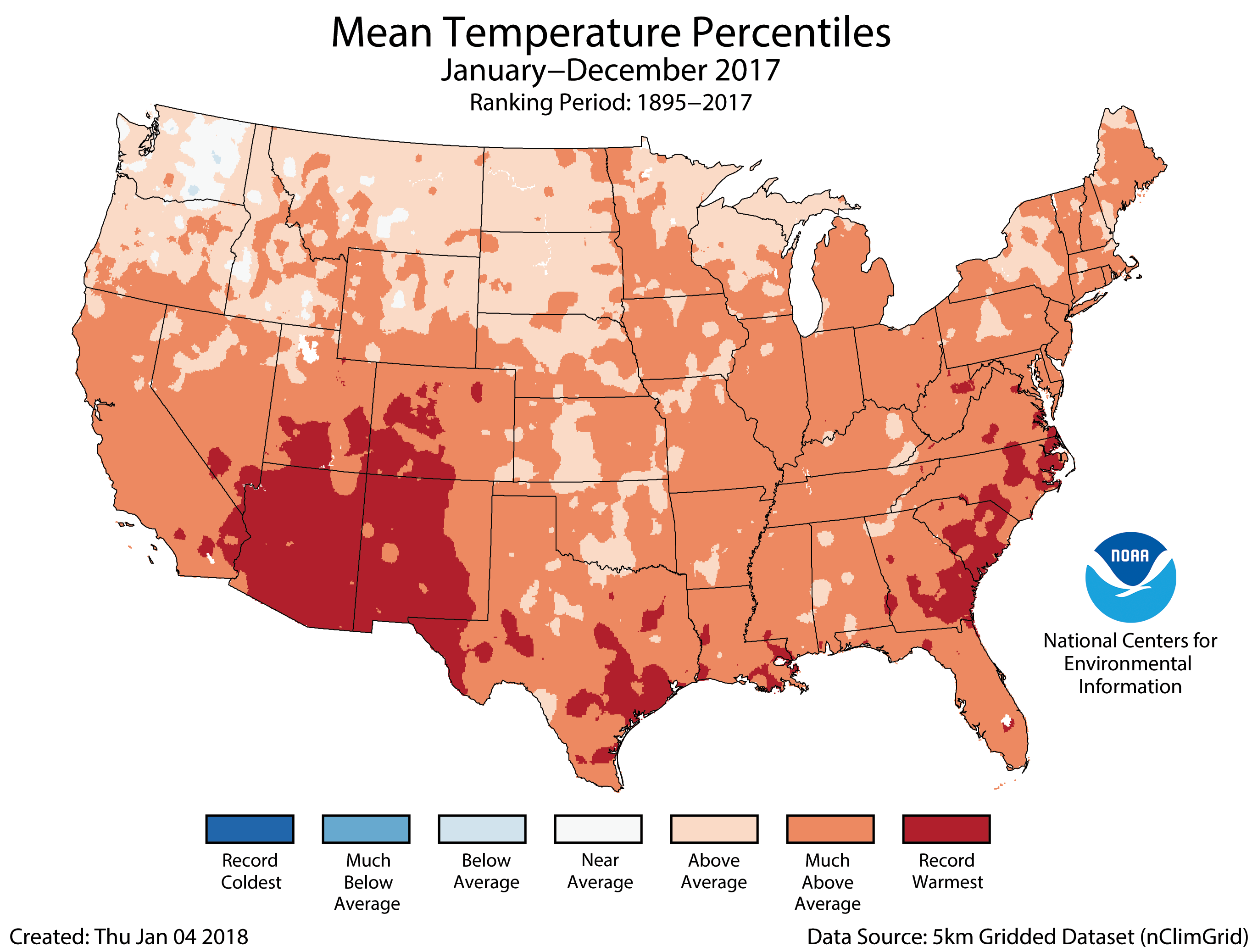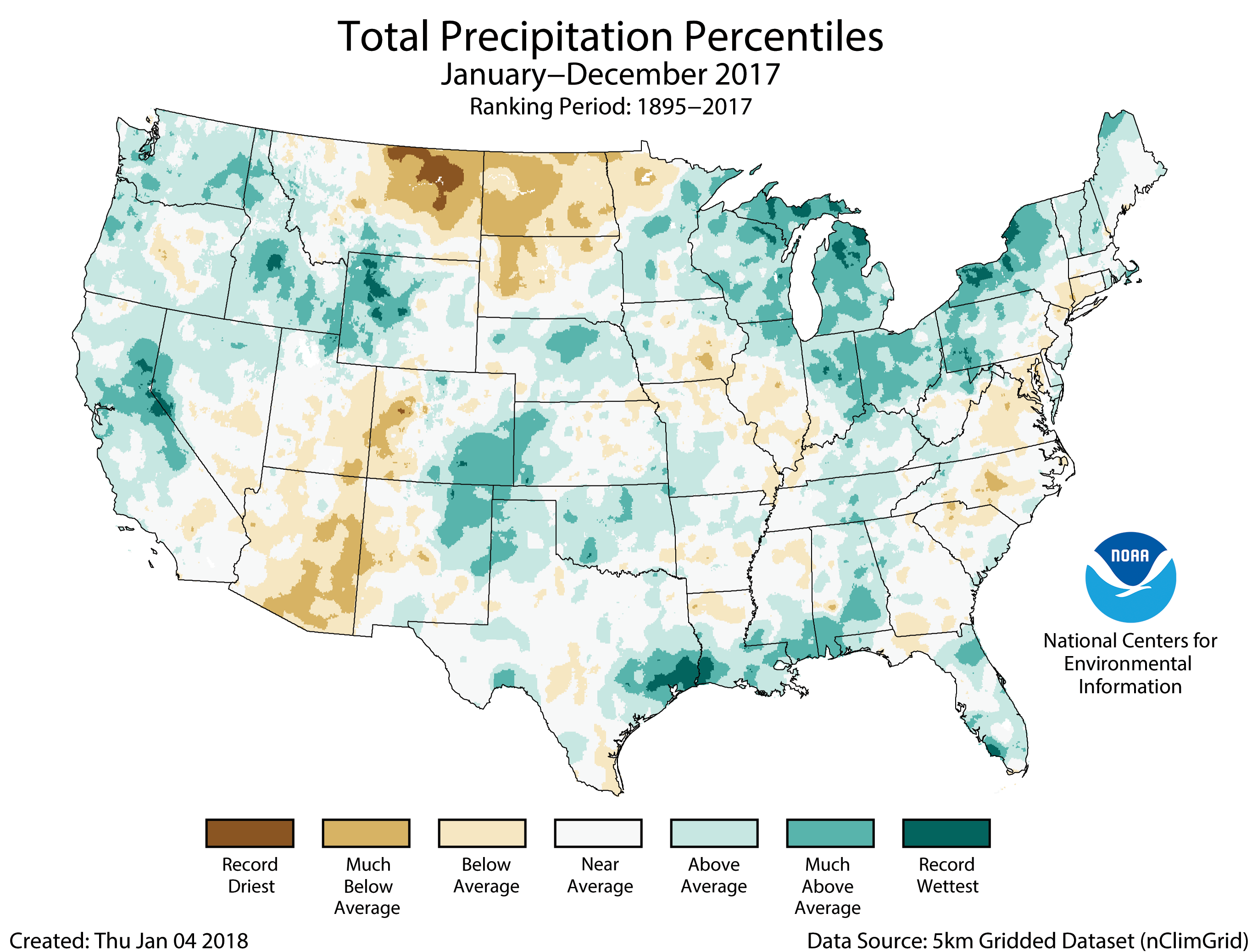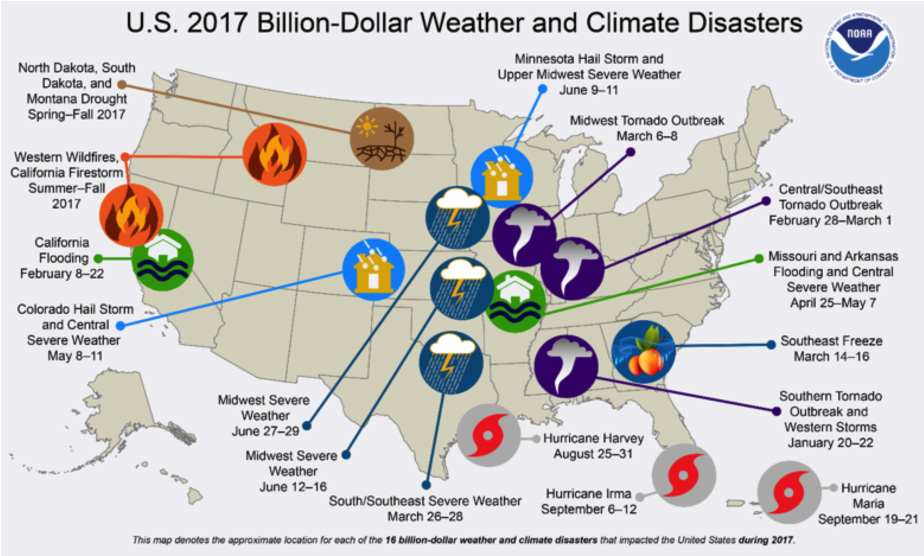2017 Was the Third Warmest Year on Record for U.S.
Climate by the numbers
Full year 2017 | January-December

The average U.S. temperature in 2017 was 54.6 degrees F (2.6 degrees F above average), making 2017 third warmest year in 123 years of record-keeping, according to scientists from NOAA’s National Centers for Environmental Information. In fact, the five warmest years on record for the U.S. all have occurred since 2006.

2017 was also was the 21st consecutive year that the annual average temperature exceeded the average. For the third consecutive year, every state across the contiguous U.S. and Alaska experienced above-average annual temperatures.
Precipitation for the year totaled 32.21 inches (2.27 inches above the long-term average) ranking 2017 as the 20th wettest year and the fifth consecutive year with above-average precipitation. The national drought footprint (total area) began and ended with about one quarter of the Lower 48 states in drought. The drought footprint reached a low of 4.5 percent in May, the smallest drought footprint in the 18-year period of the U.S. Drought Monitor.

December 2017
The month of December ranked near the warmest third of the record, with an average temperature across the contiguous U.S. of 34.8 degrees F, 2.1 degrees above average. Much-above-average temperatures were observed across the Southwest with record warmth in parts of California and Arizona, while near- to below-average temperatures were observed across parts of the Great Plains, Midwest and Northeast. The month ended with record and near-record cold temperatures for many locations in the East. The precipitation total for the month was 1.55 inches (0.80 of an inch below normal), making it the ninth driest December on record and the driest in nearly three decades.
Billion-dollar disasters in 2017
Last year, the U.S. experienced 16 weather and climate disasters each with losses exceeding $1 billion, totaling approximately $306 billion — a new U.S. record.

Far more tragic was the human toll. At least 362 people died and many more were injured during the course of the disasters that included:
-
1 freeze;
-
1 drought (affected multiple areas);
-
1 wildfire (affected multiple areas);
-
2 floods;
-
3 major hurricanes (Harvey, Irma and Maria); and
-
8 severe storms.